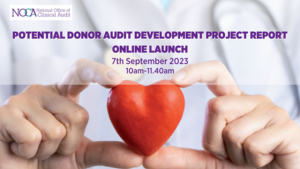Receiving dialysis treatment means there is a long intense relationship with the medical system. Most other chronic health illness conditions do not involve visiting a healthcare facility, three to four times a week for hours at a time. Patients have expressed their feeling a loss of control over their bodies and of constant waiting around for other people to do things for them. Waiting for the taxi to come, waiting for a nurse for the next step of the procedure and then waiting again for the nurse to come and take them off the machine. Patients can feel a real loss of power and control over their own lives, and this is what academic authors refer to as a ‘lack of agency’. Recognising the impact of this on patients’ mental health, a new approach of shared haemodialysis care is now recommended in the UK. This recommends that shared haemodialysis care is offered to all patients. Shared haemodialysis care allows patients to take more control of their own care, in a way that suits them. The extent of Shared Care can be as much or as little as the patient desires.
It can be small tasks like taking your own blood pressure or weight, to taking full control and doing dialysis at home. Some patients use Shared Care as a way of finding out if home dialysis is suitable for them. However, participating in Shared Care does not mean the patient is expected to transfer to home dialysis eventually. Participating in Shared Care means the patient becomes more of a partner in their own care, even when that care continues in a centre. The patient is trained to do the tasks they wish to do, and on the days when they feel too ill to do these tasks they can ask staff to take over. Studies on Shared Care show that allowing patients to have a more active role in their own care leads to improvements in their physical and mental health. From being a passive person who patiently waits for “things to be done to them” they become an active player in their own care. Patients become more involved in decisions about their own care and develop a greater understanding of how to manage their own care. They can identify problems with treatment and potential health complications more quickly. In some dialysis units in Ireland, staff have been trained to provide Shared Care as listed in the blue box below. In St. Vincent’s in Dublin some patients are actually now practicing shared care. The Irish Kidney Association will be hosting an event where patients can find out more about Shared Care haemodialysis from leading UK and Irish experts and Irish patients. Please see details below to register for this free event.
The Irish Kidney Association is delighted to announce it is hosting a Zoom event on Wednesday, October 26th at 7pm on Shared Haemodialysis Care. We will have Shared Haemodialysis Care Strategy Director and Trainer, Tania Barnes from Kidney Care UK, presenting together with healthcare professionals Donna Pike from the Altnagelvin Unit, Western Trust HSCNI in Derry, and Emer Kenny from St Vincent ’s University Hospital, Dublin. There will also be two patients sharing their experience. A questions and answers session will be included. This FREE event is open to both healthcare professionals and patients.
Watch the Zoom event recording here: https://youtu.be/Tayomp6SHdQ
AREAS WHERE STAFF HAVE BEEN TRAINED IN SHARED HAEMODIALYSIS CARE:
- Galway Wellstone
- Dublin St. Vincent’s
- Letterkenny*
- Limerick
- Wexford
- Portlaoise
* Staff currently being trained




